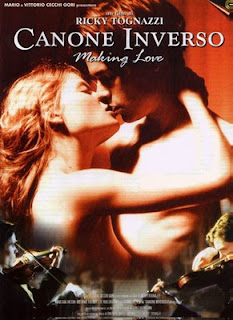On Holocaust Remembrance Day, January 27th, I'd like to share an Italian poem and a movie by an Italian director with you .Both are linked to the theme of the day.
A harsh disquieting poem, inspired by the Hebrew prayer shema, which introduces the book SE QUESTO E' UN UOMO, (If this is a man) by Primo Levi.
A harsh disquieting poem, inspired by the Hebrew prayer shema, which introduces the book SE QUESTO E' UN UOMO, (If this is a man) by Primo Levi.
Primo Levi was a Jewish-Italian chemist who became a committed writer . He had an urgent need to tell about his surviving the atrocities he had had to bear as a prisoner in one of the most infamous concentration camps : If This Is a Man - published in the U.S. as Survival in Auschwitz - is his account of the year he spent there , in Nazi-occupied Poland. He could never recover from his sense of guilt and decided to put an end to his haunted years committing suicide in 1987. SE QUESTO E' UN UOMO has been described as one of the most important works of the twentieth century.
In the poem opening the novel, Levi invites the reader to make a judgement. He alludes to the treatment of people as untermensch (German for sub-human) and subsequently examines the degree to which it was possible for a prisoner in Auschwitz to retain his or her humanity. The poem explains the title and sets a main theme of the book: humanity in the midst of inhumanity. The last part of the poem, beginning "meditate" explains Levi's purpose in having written it: to record what happened so that successive generations may be able to ponder (a more literal translation of meditare) the significance of the events which he lived through.
Here are the lines. In Italian the words are harsher, much more bitter. It is not my translation, I found it online. It is a powerful shriek of sorrow and anger.
Here are the lines. In Italian the words are harsher, much more bitter. It is not my translation, I found it online. It is a powerful shriek of sorrow and anger.
Voi che vivete sicuri You who live safe
Nelle vostre tiepide case In your warm houses,
voi che trovate tornando a sera You who find warm food
Il cibo caldo e visi amici And friendly faces when you return home.
Considerate se questo è un uomo Consider if this is a man
Che lavora nel fango Who works in mud,
Che non conosce pace Who knows no peace,
Che lotta per mezzo pane Who fights for a crust of bread,
Che muore per un sì o per un no. Who dies by a yes or a no.
Considerate se questa è una donna Consider if this is a woman
Senza capelli e senza nome Without hair, without name,
Senza più forza di ricordare Without the strength to remember,
Vuoti gli occhi e freddo il grembo Empty are her eyes, cold her womb,
Come una rana d'inverno. Like a frog in winter.
Meditate che questo è stato Never forget that this has happened.
Vi comando queste parole. Remember these words.
Scolpitele nel vostro cuore Engrave them in your hearts,
Stando in casa andando per via When at home or in the street,
Coricandovi alzandovi When lying down, when getting up.
Ripetetele ai vostri figli. Repeat them to your children.
O vi si sfaccia la casa Or may your houses be destroyed,
La malattia vi impedisca May illness strike you down,
I vostri nati torcano il viso da voi May your offspring turn their faces from you.
(Primo Levi, Se questo è un uomo, 1947 )
And now the movie. A touching, romantic story taking place in two different and distant crucial historical moments in Prague: WWII and the Spring of 1968. This 2000 Italian film with an excellent international cast is directed by Ricky Tognazzi and is loosely based on Paolo Maurensing's novel Canone Inverso(1996).
Canone inverso- Making Love stars Hans Matheson (Doctor Zhivago, The Tudors, Sherlock Holmes 2009) as Jeno Varga, Gabriel Byrne as a mysterious violinist, Peter Vaughan as Old Baron Blau, Melanie Thierry as Sophie Levi, Nia Roberts as Costanza. I saw it several years ago, on its release, but it has remained one of my favourite WWII movies somehow linked to the Holocaust.
Costanza is drinking a beer in a Prague pub, a summer night in 1968, when a violinist enters and starts playing a "canone inverso" for her. It is not by chance... he is looking for her and she remembers that music. That violin, the music and the man have a story that might concern her. It is the love story between Jeno Varga - a poor jewish boy living in Prague before and during WWII - and the music, between Jeno Varga and Sophie Levi. It is also the story of the deep friendship between David and Jeno . Music and Love the most powerful bonds that could resist the passing of time. It is a beautiful film with brilliant actors, a great script and Ennio Moricone’s music. I've found this clip on Ututbe. It is in English but it contains major spoilers, so if you want to look for this movie and watch it entirely, it is better to skip it. If, instead, you want to see it, get ready, it is the moment when Costanza understands who the violinist is … who she is … where she comes from.
NEVER FORGET THAT THIS HAS HAPPENED



